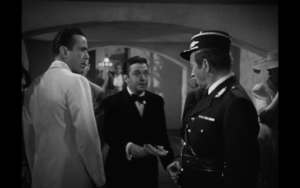Sometimes following action on a bill in the California legislature feels like you are watching a high stakes poker game. This week such a hand was played in which the gambling house (think the ruling majority) risked $269 million hoping to cash in a much larger prize in a few months. But if the gamble fails then the gamers under the dome are busted with nothing for beleaguered budgets.
Senator Pat Bates dealt the hand as she put up SB 1319, a bill to alter the change in ownership provisions which a long-ago legislature passed to implement a section of Proposition 13, the property tax reform law overwhelming passed by voters in 1978.
Bates’ bill would establish new rules to determine when commercial property changes hands. The bill provided that when 90 percent of ownership interest changed hands within a three-year period, a change in ownership of the property is established and the property is reassessed at full market value, increasing property tax revenue for a local county.
The bill is in response to a number of transactions in which 100% of a commercial property changed ownership but the ownership was divided among partners, none of whom secured a 50% ownership share. Under current law, this condition means the property is not reassessed and the county’s property tax take remains the same.
Such a situation made headlines nearly 15 years ago when computer titan Michael Dell engineered the purchase of a swank Santa Monica hotel, but none of the owners in Dell’s group claimed 50% of the purchase. According to Sen. Bates, that maneuver cost LA County $1 million a year in property taxes.
With government budgets in California gasping for air because they have been depleted during the business lockdown to fight Covid-19, Bates felt her plan would fix a flaw in a 40-year old legislative implementation law, make property tax collection more fair, and, oh by the way, help rescue those breathless budgets.
If Bates’ bill cleared the Senate Finance and Governance Committee earlier this week, it would be on its way to help government budget shortfalls in California to the tune of $269 million a year, according to the Board of Equalization. Not too bad and right there with the actual gambling bill in the legislature by Senator Bill Dodd that is gaining support to allow sports betting that would bring in an estimated $200 million a year at first, rising to perhaps $500 million over time.
But Bates bill failed on a party line 3 to 2 vote.
Legislators are desperately looking for revenue sources to offset the government budget problems. Why turn down more than a quarter-of-a-billion dollars?
Here’s where the big gamble came in.
A much larger property tax increase is set for the November ballot. The measure commonly referred to as a “split roll” will reassess business property on a regular schedule and potentially bring in $12 billion a year.
Supporters want to use the example of Michael Dell’s hotel and similar transactions as campaign fodder to support the split roll ballot measure. That point was made clear to legislators at the committee hearing. They needed the bill to be defeated to keep the propaganda chip alive.
Ironically, there was support for a similar bill to Bates’s measure that was introduced by a pair of Democratic legislators in 2014, Tom Ammiano, no friend of Proposition 13, and Raul Bocanegra. The bill cleared the Assembly but stalled in the Senate when word was sent that passing the bill could upend efforts for an already in-the-works split roll plan.
So, at the Sacramento casino on Wednesday, the bet was made. Cast aside $269 million in hopes of cashing in on $12 billion.
Given the economic condition of the state and voters’ concerns with jobs and the economy, there’s a good chance the split roll will fail, and the Capitol gamblers will come out flat busted.
I suppose it’s appropriate to cite one of the most famous gambling scenes of all time from the movie Casablanca, with a slight change here: ‘I’m shocked, shocked to find politics going on in here!’


